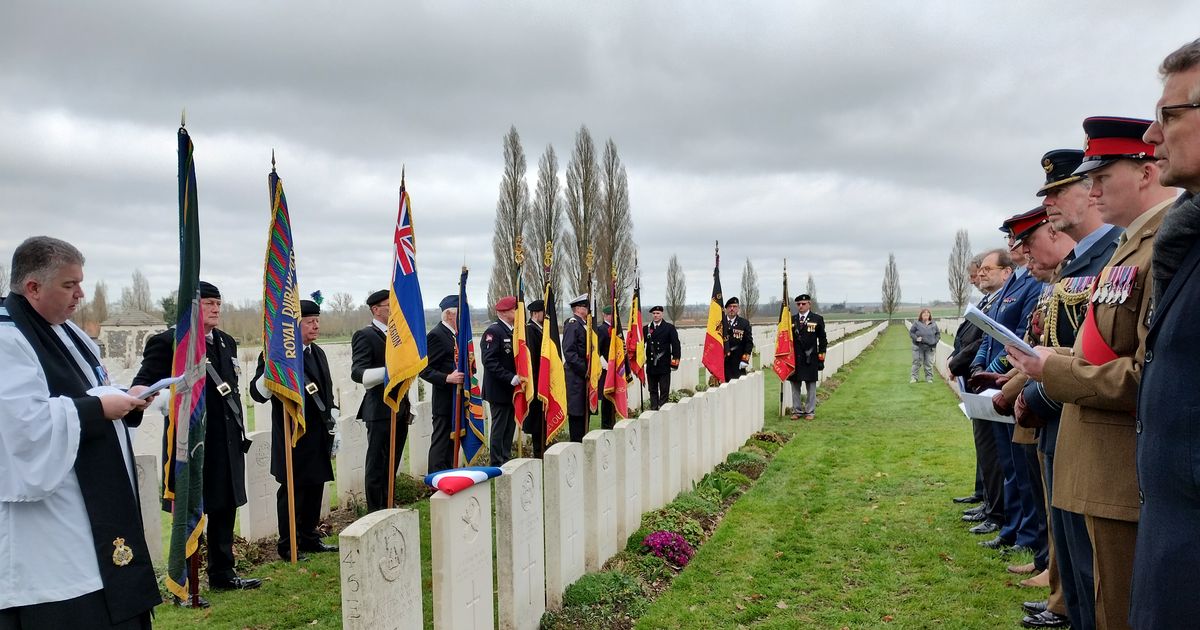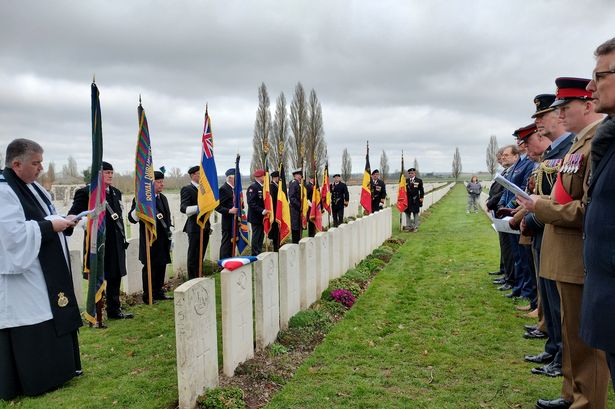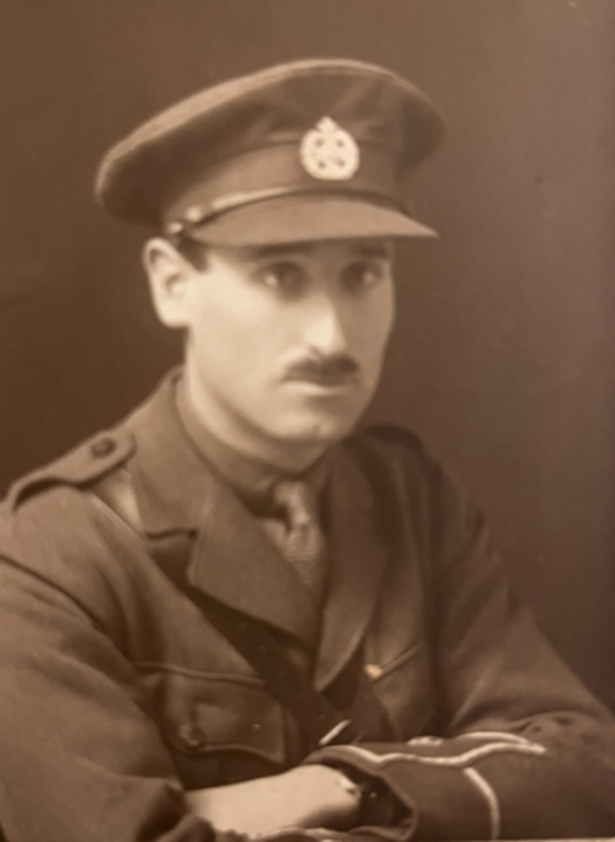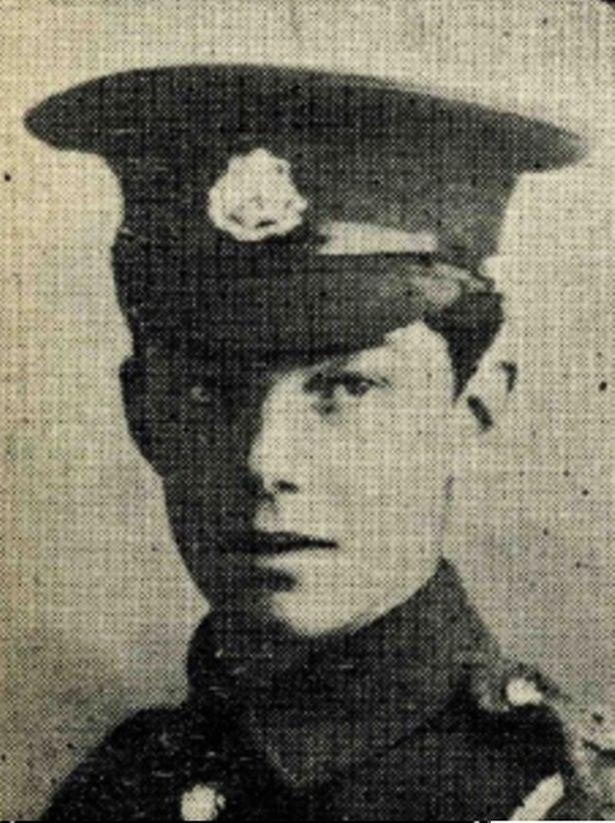A Lanarkshire soldier who lost his life during the First World War has been honoured more than a century after his death as one of three soldiers whose graves have now been identified. Their final resting places were rededicated in a touching ceremony on Wednesday.
2nd Lieutenant Hugh Barr from East Kilbride, who was just 28 when he fell, died amid heavy combat on September 30, 1918, while courageously engaging the enemy in the German-held town of Werwick as part of the 35th Battalion Machine Gun Corps.
Prior to his wartime service, Barr worked for an insurance company and had joined up on September 5, 1914. His wartime journey took him from Gallipoli to Alexandria and Salonika before arriving in Belgium.
 Join the Daily Record WhatsApp community!
Join the Daily Record WhatsApp community!
Get the latest news sent straight to your messages by joining our WhatsApp community today.
You’ll receive daily updates on breaking news as well as the top headlines across Scotland.
No one will be able to see who is signed up and no one can send messages except the Daily Record team.
All you have to do is click here if you’re on mobile, select ‘Join Community’ and you’re in!
If you’re on a desktop, simply scan the QR code above with your phone and click ‘Join Community’.
We also treat our community members to special offers, promotions, and adverts from us and our partners. If you don’t like our community, you can check out any time you like.
To leave our community click on the name at the top of your screen and choose ‘exit group’.
If you’re curious, you can read our Privacy Notice.
After his tragic demise, one officer spoke highly of Barrs valour: “2nd Lt Barr went out on a daring reconnaissance during an attack, and his men state that his bravery and daring astounded everyone, and there is no doubt his action was the means of saving many lives and of helping to restore the situation at a critical period.”
Initially laid to rest on the edge of Werwick, Barr’s body was later relocated after the conflict and interred anonymously at Zantvoorde British Cemetery.
The remains of Lance Corporal James Ball Baron MM and Lance Corporal Samuel Chapman also shared this fate, with both men sadly buried as unknown soldiers at Tyne Cot Cemetery.
L/Cpl Baron had bravely served with the 43rd Machine Gun Corps, meeting his end at age 29 on August 24, 1917, amidst a fierce counterattack by German forces near Hooge following a successful advance by British troops two days before.
Meanwhile, 19 year old L/Cpl Chapman passed away from wounds on 14 December 1917 after sustaining injuries near Passchendaele while serving with the East Yorkshire Regiment.
The graves of all three soldiers were identified following submissions by researchers to the Commonwealth War Graves Commission (CWGC), which were then confirmed through further investigations by the National Army Museum and the Joint Casualty and Compassionate Centre (JCCC), known as the “war detectives”.
Rededication services for all three graves took place at two cemeteries on Wednesday, with attendance from current members of The Duke of Lancaster’s Regiment and The Royal Yorkshire Regiment, as well as representatives from the Machine Gun Corps Association.
Rosie Barron, a JCCC caseworker, expressed: “It has been an honour to have been involved in the organisation of these rededication services and to have joined the family of L/Cpl Chapman, their military family and the local community in Ypres in remembering these three men.”
She added: “The memory of each of these men has now been passed through generations of their families and they are all still fondly and proudly remembered.”
New headstones with the names of each soldier were supplied by the CWGC.
Xavier Puppinck, CWGC director for the southern and central Europe area, stated they were “honoured” to contribute to ensuring that the servicemen are “remembered in perpetuity”.
He remarked: “After years of being commemorated as unknown soldiers, thanks to the meticulous research and collaboration of the teams involved, their graves now bear their names, ensuring they will never be forgotten.”
The commemorative service for L/Cpl Chapman was attended by his relative, his great, great nephew Tim Buescher, who made the journey from Yorkshire to honour his memory.
“We are amazed that after all this time, Sam is found,” Buescher expressed in respect of the discovery.
“This generation of our family, like many others, was hit hard by the Great War and as a result, these people were lost to us before we could know them.”
Buescher added: “Being able to commemorate their life and their sacrifice, whilst mourning their loss, feels like they are being brought home somehow. Thank you.”
Reverend Paul Robinson CF, the chaplain to 4th Battalion The Duke of Lancaster’s Regiment, mentioned how privileged he felt to conduct the service, saying it was a “great honour”.
“It is important that we as a nation at opportunities like this today reflect on the enormity of what has taken place, the horror, the loss, the frustration,” Robinson emphasized.
“We must respect our values and our freedoms and remember those that made the ultimate sacrifice for our way of life.”

 Rev Paul Robinson CF conducting the rededication service for Lance Corporal Baron. (Image: Copyright remains with handout provider)
Rev Paul Robinson CF conducting the rededication service for Lance Corporal Baron. (Image: Copyright remains with handout provider) (Image: No credit)
(Image: No credit) Lance Corporal Samuel Chapman,(Image: Copyright remains with handout provider)
Lance Corporal Samuel Chapman,(Image: Copyright remains with handout provider)